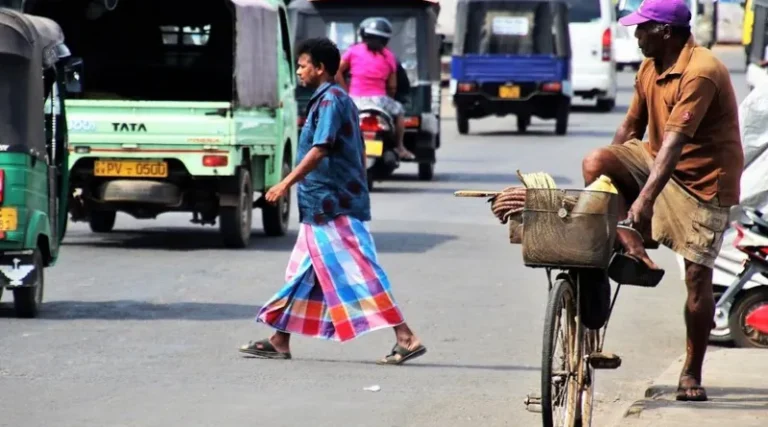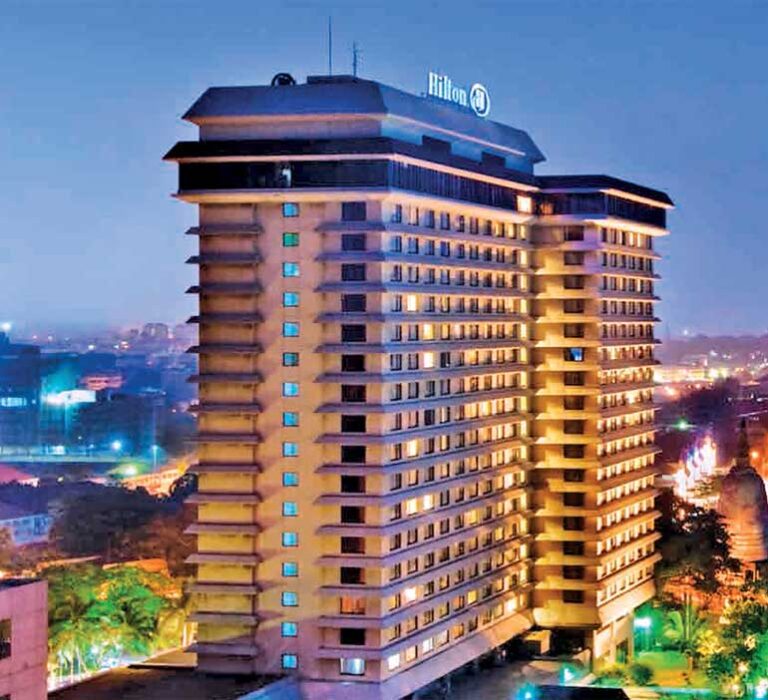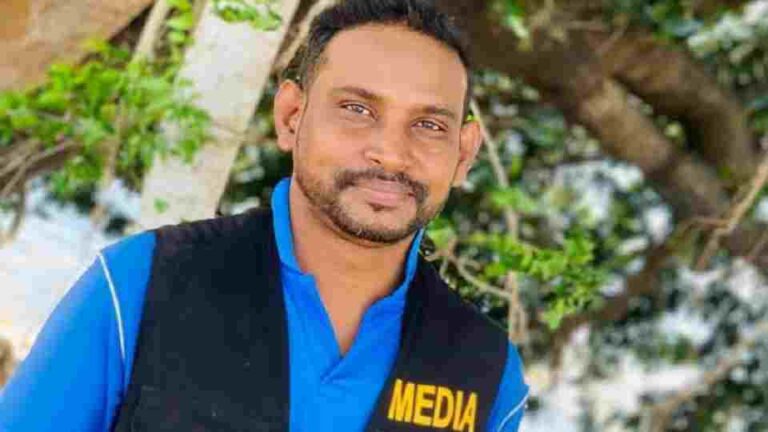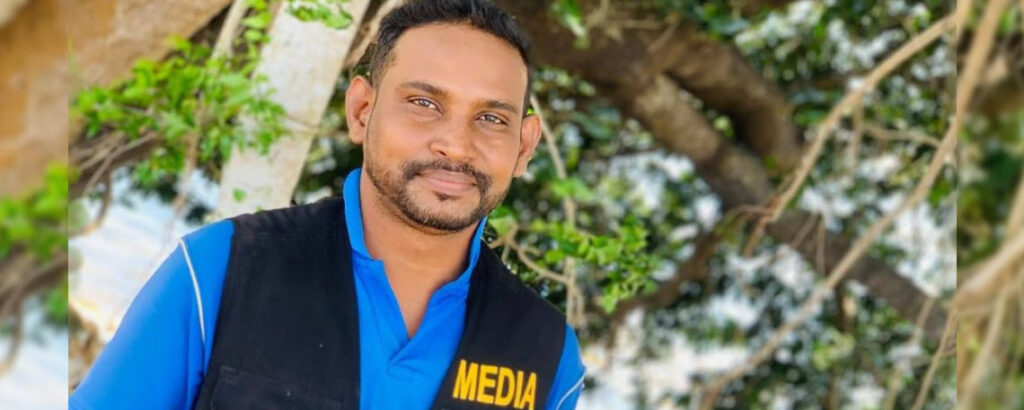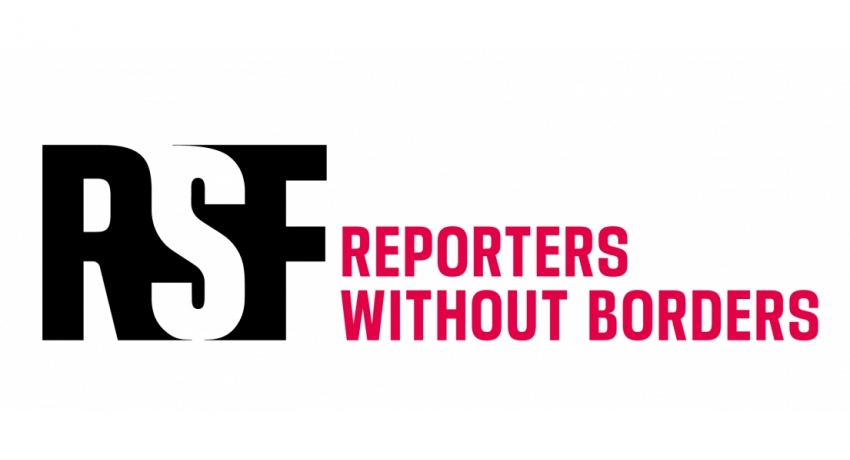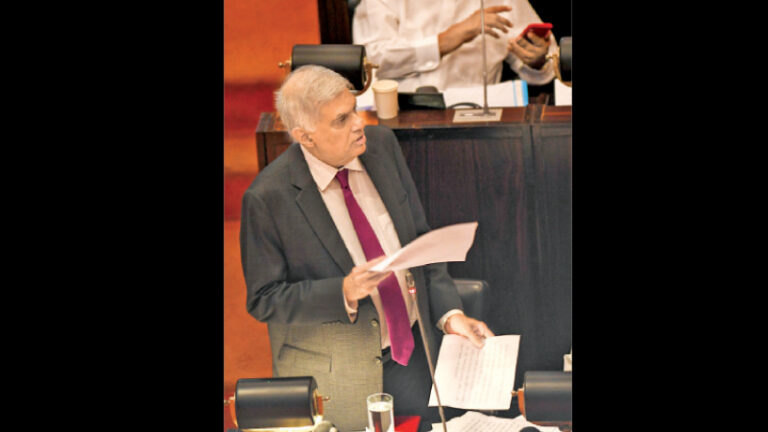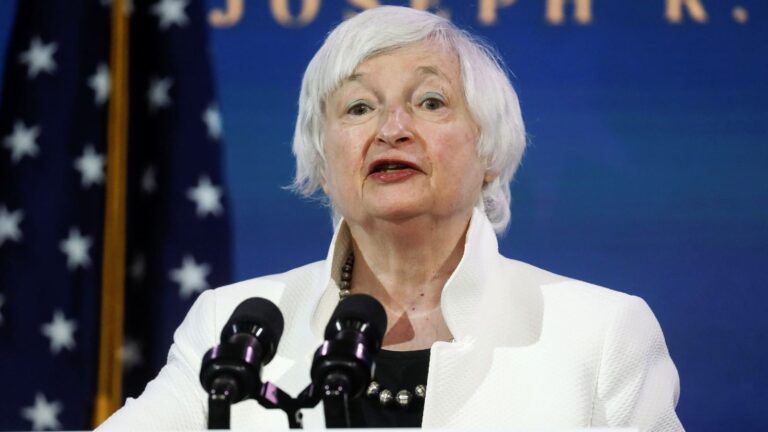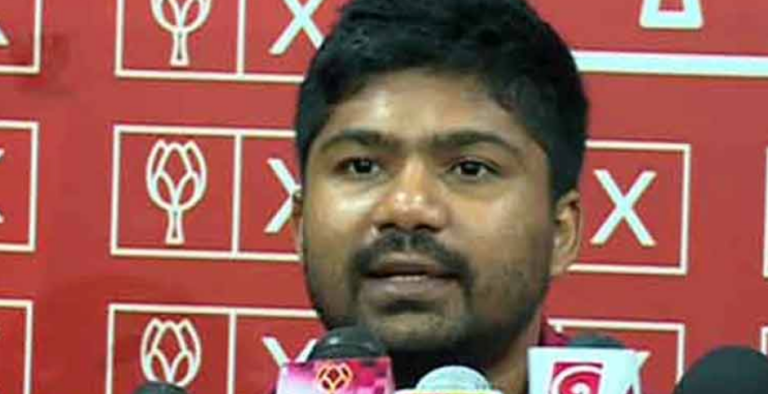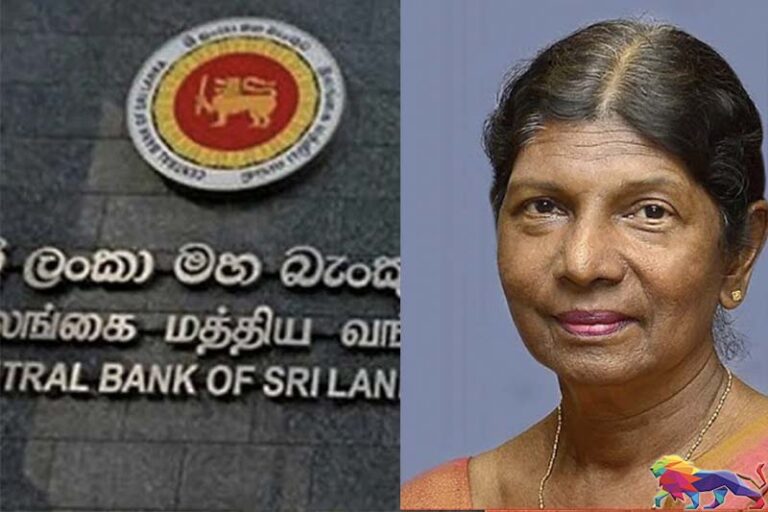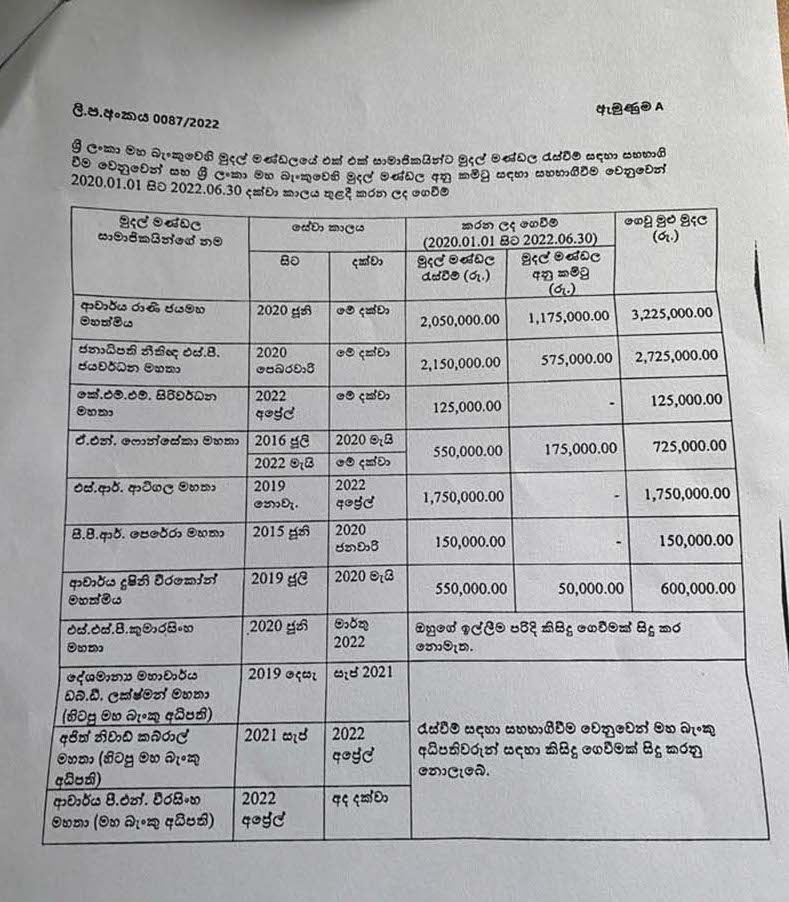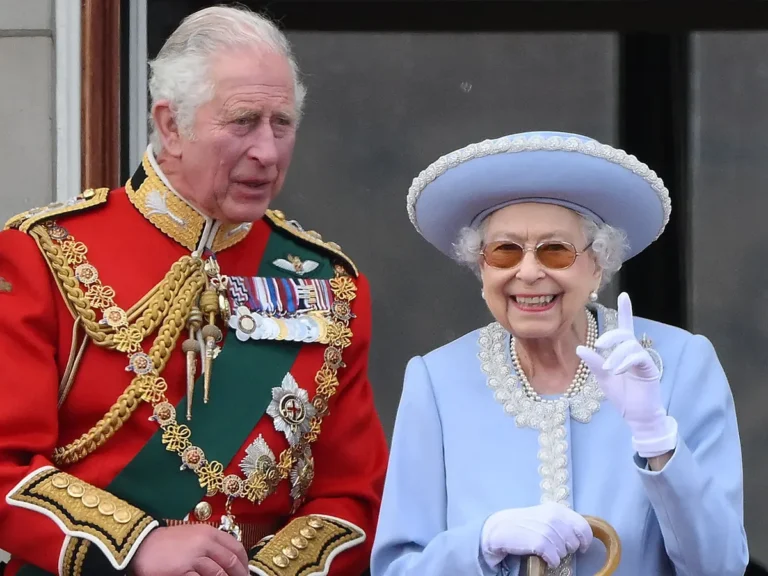S. V. Kirubaharan, France
The anxiously awaited comprehensive report of the UN High Commissioner for Human Rights – UN HCHR on the Situation of human rights in Sri Lanka (A/HRC/51/5) is now in the eyes of the world.
In other words, neither the Executive President nor any artful dodger can hide this report any more. Even though it is known as the ‘Advance Unedited Version’, any dream that the team from Colombo in Geneva may have of bringing huge changes, will not work.
The public opinion is that rather than presuming to make changes to the report, Colombo officials should go through all the pledges and commitments that they have already given to the international community and implement them without further delay. How long can the pretexts of so-called terrorism, the Covid pandemic and non-violent demonstrations, be used for the non-implementation of pledges and commitments?
The UN HCHR’s report consists of 16 pages and it is divided into seven main sections, with sub-sections. The sections are titled: Introduction; Context; Human Rights Impact of the Economic Crisis; Human Rights Trends and Developments; Reconciliation and Accountability; Conclusions; and finally, Recommendations. There are 71 paragraphs in total.
Below I highlight some excerpts from the report:
Under sub-title ‘Prevention of Terrorism Act’ paragraph 18 says: In a long-awaited legal reform, the Parliament passed the Prevention of Terrorism Act (PTA) Amendment Bill on 22 March 2022. While the amendments improve some safeguards, they leave intact some of the most problematic provisions of the Act. In June 2022, the Government announced it had been applying a de facto moratorium on the use of the PTA since March, however in an alarming development three student leaders were detained under the PTA on 18 August 2022.
Under sub-title ‘Militarization’, paragraphs 21 to 26 read as follows: In previous reports, the High Commissioner has warned that the accelerating militarization of civilian government functions was undermining democratic institutions in Sri Lanka. Special procedures have also expressed their concerns about lack of security sector reforms and de-militarization and urged the Government to take steps to terminate military involvement in commercial activities and reduce military presence in the North and East.
…This will be particularly important at a time Sri Lanka is negotiating international support and relief from the current economic crisis. In 2022, for instance, the Defence Ministry was allocated 373.1 billion rupees (then US$1.86 billion), which accounted for 15 per cent of total government expenditure making it the highest allocated sector in 2022. In comparison, the Health Ministry was allocated 158 billion rupees (then US$790 million), a decrease of 6 billion rupees from the previous year despite the COVID-19 pandemic.
Between 2020 and 2022, former President Rajapaksa appointed more than 28 serving or former military officers in government ministries…. However, President Wickremesinghe has since continued to rely on military appointees and involve the military in law enforcement. On 13 July 2022, the President appointed a special committee comprising of the Chief of the Defence staff, the Inspector-General of Police and the Tri-forces Commanders and “gave them full authority” to “use emergency law and the curfew” to protect law and order. The President re-appointed retired General Kamal Gunaratne as Defence Secretary; General Shavendra Silva was appointed as the Chief of Defence Staff from June 2022. Both have been implicated in alleged human rights violations as highlighted in previous reports.
The role of the military in law enforcement, governance and development has been even more prominent in the North and East of Sri Lanka. Although the war ended in 2009, military presence continues to be significant, in terms of personnel, checkpoints, and involvement of military in drug law enforcement, agriculture and development activities.
In the context of mass protests and severe shortages of fuel, the Government deployed the military for policing assemblies and to guard public buildings, fuel stations and private residences……
Under sub-title ‘Inclusion and reconciliation’, paragraph 27 insists on the following: In previous reports, the High Commissioner expressed concern about the trend towards ethno-religious majoritarianism, which was undermining human rights and reconciliation. Former President Rajapaksa had actively promoted a Sinhala Buddhist majoritarian ideology with the support of the military and Buddhist monks. The Task Force he established on “One Country, One Law” in October 2021, chaired by Gnanasara Thero, an extremist Buddhist monk and the leader of the Bodu Bala Sena (BBS) submitted its report in June 2022. President Wickremesinghe has indicated publicly that his administration will not continue this initiative.
Under sub-title ‘Intimidation and threats to former combatants, civil society and victims’, paragraphs 30 to 32 say the following : OHCHR continues to receive reports of surveillance, intimidation, harassment of journalists, human rights defenders, families of the disappeared and persons involved in memorialization initiatives, by intelligence services, military and police, particularly in the North and East.
Families of the disappeared face surveillance, questioning, intimidation and unannounced visits by intelligence officers and the police, especially when they are actively involved in protests or memorialization. As highlighted in previous reports, women are particularly affected given their prominent role in advocating for justice. Civil society organizations throughout the country continue to be questioned about their work and funding sources.
Former LTTE cadres, including women, are subject to intensive surveillance, regardless of whether they have undergone the government’s ‘rehabilitation’ scheme or not. Women ex-combatants still face serious security risks, including sexual abuse and extortion, including by security forces and others. The High Commissioner fears that without fundamental security-sector reforms and de-militarization of the North and the East, this pervasive culture of surveillance and oppressive environment for the people in these areas will continue.
Under sub-title ‘Freedom of expression, peaceful assembly and law enforcement’, paragraphs 33 to 39 say:
While overall, the security forces have responded to the protest movement with considerable restraint over a sustained period, on some significant occasions they reportedly employed unnecessary use of force against protestors and used measures to prevent or obstruct protests. Journalists have also been targeted for their reporting on the crisis and protests.
On 31 March 2022, police dispersed protesters who marched towards the President’s private residence in Colombo, injuring 50 people and arresting over 20; some were allegedly ill-treated including by men in civilian clothing reportedly belonging to presidential security. On 19 April 2022, police opened fire at a spontaneous protest in Rambukkana, at a fuel distribution point. One person was killed by live ammunition and 24 others were injured. An investigation by the HRCSL found that police had used excessive use of force.
On 9 May 2022, widespread violence erupted after supporters of then Prime Minister Mahinda Rajapaksa attacked peaceful protestors in Colombo. Despite large police presence, a pro-government group entered the “Gota Go Gama” protest site, attacked the protesters and destroyed their makeshift tents. Subsequently, there was a wave of violence throughout the country against politicians affiliated with the ruling party. Eight people died during the incidents, including a Member of Parliament and two local officials, and according to the Government, there were 244 incidents of destruction of property………
On 22 July 2022, security personnel, including police and military, stormed at a protest camp near the presidential offices in Colombo, injuring at least 48 people; nine others were arrested. The evacuation and medical treatment of injured protestors was obstructed. Since then, a number of leaders and members of the protest movement and trade unions have been arrested, some in an irregular manner by plain-clothes personnel using unmarked vehicles……………
Excessive force was most recently used in breaking up a peaceful student protest in Colombo on 18 August 2022 with 20
In the North and the East, the families of the disappeared, who had been staging their continuous roadside protests since 2017, have also continued to face harassment, intimidation and violence. On 20 March 2022, police used force against members of the Mullaitivu Disappeared Relatives’ Association and other families of the disappeared who tried to carry out a protest during a visit of the former Prime Minister to the area.
Under subtitle ‘Transitional justice mechanisms and confidence-building measures’, paragraphs 42, 45, 46 and 47 state – Thirteen years on from the end of the war, families of the disappeared are still searching for truth and justice for enforced disappearances..….. In May 2022, one of the Commissioners, Shiraz Noordeen resigned from the OMP – Organisation of Missing People, publicly stating that the OMP was unable to act independently to bring justice to victims.
Although the purpose of the OMP is to trace and search for the missing, it has not been able to trace a single disappeared person or clarify the fate of the disappeared in meaningful ways, and its current orientation is to expedite the closure of files. The Government informed OHCHR that the OMP has so far interviewed 1,207 applicants (out of the original list of more than 14,000) for the purposes of verification after which it makes recommendations for relief, further tracing or investigation……
Resolution 30/1 and its successors provided a practical roadmap to achieve these ends, and the High Commissioner hopes the new administration will revitalise the transitional justice process. The results of the 2016 national consultation process, which engaged Sri Lankans from all communities and stakeholders such as victims, religious leaders, civil society organizations and the military remains a strong foundation for renewed transitional justice efforts.
Return of land – In his 8 August 2022 speech, the President acknowledged that there are many land issues that need to be resolved. The Government reports that the total number of private lands released by the Armed Forces from 2009 to June 2022 is 2,601,796 acres or 92.42 per cent, with a further 53 (0.19 per cent) acres proposed for release (no change since the last report).
However, there have been attempts to acquire new land to expand the existing military bases in the Northern provinces. For example, land acquisition process under the 2014 Acquisition Act for the Gotabaya Navy Camp in Vattuvakal Mullaitivu District is underway, which some locals have opposed.
As highlighted in the High Commissioner’s last update, there has also been a more recent trend of land disputes in relation to construction of Buddhist heritage conservation or for forestry protection, mainly in the Northern and Eastern Provinces, which has further jeopardized reconciliation and created new conflicts. In June 2022, the Army facilitated the dedication of a new Buddhist shrine in Kurunthur Malai, Mullaitivu, in violation of a Court order that prohibited any new edification in an area that is claimed by Hindu and Buddhist worshippers. On 14 July, Mullaitivu court ordered the removal of all new constructions, including a new Buddhist shrine.
Under sub-title ‘Emblematic cases’, paragraphs 48 to 50: For more than a decade, there has been almost no progress in most emblematic human rights cases highlighted in previous reports, which are only a handful of innumerable cases. In several instances, hearings continue to be postponed repeatedly and cases have lingered before the courts for over a decade. In others, there has beenactive reversal in the form of acquittals on appeal and presidential pardon granted to those accused or convicted of grave violations.
Likewise, while 25 suspects were charged in October 2021, there has been no further progress to establish the truth and investigate the terrible Easter Sunday bombings in 2019 despite the fact that church leaders and victims continue to demand a complete and transparent account of the circumstances that allowed those attacks and the role of the security establishment. The full volumes of the Presidential Commission of Inquiry appointed to investigate the attacks have still not been released…
Since 2020, impunity was further entrenched through political obstruction of accountability for gross human rights violations. For instance, the Presidential Commission of Inquiry to Investigate Allegations of Political Victimization actively intervened in police investigations and court proceedings in several high-profile human rights cases. It also ‘investigated’ a number of high-profile corruption cases relating to incidents between 2005 and 2015…
Sub-title ‘Further options for advancing accountability’, paragraphs 60, 61, and 64:
The High Commissioner hopes that the new administration will respond to the popular demand for accountability for economic crimes, including corruption, and abuse of power with a renewed commitment to end impunity.
In the absence of credible or effective domestic remedies, there have been some developments at the international level and in Member States (outside of Sri Lanka) to advance accountability. For instance, communications were submitted in October and November 2021 to the Prosecutor of the International Criminal Court under Article 15 of the Rome Statute requesting that the Prosecutor exercise jurisdiction over crimes under international law in Sri Lanka. While Sri Lanka is not a State Party to the Rome Statute, the communications submit that the alleged crimes occurred partially on the territory of States Parties.
From this mapping of existing initiatives, there are several opportunities for States to act, individually and collectively, in particular by:
(i) Using all potential forms of jurisdiction, including extraterritorial and universal jurisdiction, to investigate and prosecute crimes under international law committed in Sri Lanka; and increasing the attention and cooperation regarding relevant cases through existing international networks;
(ii) Imposing and expanding targeted sanctions, as part of a wider range of accountability measures, and other restrictive measures in relation to those who are credibly alleged to have been responsible for gross violations and abuses of international human rights law or serious violations of international humanitarian law;
Conclusions from paragraphs 67, 68 and 69:
Impunity remains a central obstacle to the rule of law, reconciliation and Sri Lanka’s sustainable peace and development, and remains the core risk factor for recurrence of further violations. Thirteen years since the end of the war, victims of past human rights violations continue to await truth and justice. The Sri Lankan State, including through successive governments, has consistently failed to pursue an effective transitional justice process to hold perpetrators of gross human rights violations and abuses accountable and uphold victims’ rights to truth, justice and reparations.
Fundamental changes will therefore be required to address the current challenges and to avoid the repetition of the human rights violations of the past. In this context, the new Government should immediately reverse the drift towards militarization, end the reliance on draconian security laws and crackdowns on peaceful protest, and show renewed commitment to security sector reform and ending impunity. It should recommit to a genuine, comprehensive and transformative transitional justice process, with benchmarks and timelines for implementation, and in consultation with the victims and civil society and with support from international partners. Further, it should pursue a more fundamental constitutional reform through broad- based and consultative processes representative of all Sri Lankans to strengthen democratic check and balances and devolution of political authority, which is integral to reconciliation and the full enjoyment of human rights by all members of its population.
The Human Rights Council should continue to monitor developments closely, and in the absence of tangible results at the national level that ensure justice for Sri Lankan people, Member States should continue to pursue complementary international strategies for justice and accountability for human rights violations, corruption and abuse of power.
Recommendations from paragraphs 71, 72 are as follows:
OHCHR recommends that the Sri Lankan authorities:
Take all necessary measures to guarantee people’s economic and social rights during the economic crisis; ensure immediate relief for the most marginalized and vulnerable individuals and groups based on non-discrimination and protection of human rights, and strengthen social protection by increasing financing and extending it to cover emerging needs;
Reduce considerably military spending, decisively tackle corruption and increase investments in health, social security and education through international co-operation; assess any potential human rights impact of international financial assistance programmes and take preventive measures to reduce it to the bare minimum;
Undertake a broad -based consultative process representative of all Sri Lankans to advance constitutional reforms that guarantee the independence of key institutions, including the judiciary and the Human Rights Commission, and advance the devolution of political authority, which is integral to reconciliation;
…an ad hoc special court, as well as security sector reform and vetting; also re-energise the Office of Missing Persons and Office for Reparations to ensure they can discharge their full mandate independently and effectively;
Pursue investigation and prosecutions in emblematic cases of human rights violations; release the complete findings of previous inquiries into the Easter Sunday bombings and establish a follow-up independent and transparent investigation with international assistance and the full participation of victims and their representatives;
Take steps to end the influence of the military on civilian spheres and reduce military presence in the Northern and Eastern provinces;
Return all private land held by the military and impartially adjudicate land disputes, including through interfaith dialogue about the erection of religious sites;
Invite OHCHR to strengthen its country presence and provide technical assistance to authorities and civil society in Sri Lanka;
The High Commissioner reiterates the recommendations she made in paragraph 61 of her report to the Human Rights Council and Member States in 2021 and further recommends that they:
Request OHCHR to continue its enhanced monitoring and report regularly to the Council on the human rights situation in Sri Lanka, including progress towards accountability and reconciliation and steps to address economic crimes that have impacted on human rights;
Cooperate in investigating and prosecuting perpetrators of international crimes committed by all parties in Sri Lanka through judicial proceedings in national jurisdictions, including under accepted principles of extraterritorial or universal jurisdiction, through relevant international networks and in cooperation with victims and their representatives.
General opinion
This is not the first time that the UN HCHR has published a comprehensive report on Sri Lanka. Former HCHRs Louise Arbour, Navaneetham Pillai, Al Hussein and now Michelle Bachelet have released many damning reports on Sri Lanka highlighting the realities. The question here is: Why is Sri Lanka not coming forward to implement any of their own pledges, commitments or the recommendations of international institutions and others? Why does every government in power use lame pretexts rather than respect the words they themselves gave on behalf of their citizens, or in other words – on behalf of the desperate victims in their country? Is Sri Lanka not ashamed when outside institutions say what is lacking or what is needed for their citizens?
Using the constitution as a pretext doesn’t work in the UN. If the present government and their pied-pipers are really worried about the constitution, can they demonstrate they have adhered to everything it says? If so, can they explain why the thirteenth amendment which has been part of the constitution for the last three decades has never been implemented by the Sri Lanka government, even over the last long thirteen years?
During the war, just to get the support of the international community, Mahinda Rajapaksa said that soon after bringing the war to an end, not only the thirteenth would be implemented but the government would deliver an enhanced thirteenth amendment they called the ‘Thirteenth Plus’. Where is it? He may be right in what he said. What he meant by ’Thirteen Plus’ is: “Even after thirteen years, we will do nothing about the ethnic conflict”. I presume that this is the right interpretation.
Very briefly, Sri Lanka should look at the history of the UN and the birth of new countries via UN mechanisms. What I have written and predicted in the past has never been wrong.
If Sri Lanka sends a jumbo team to Geneva to counter whatever is going to happen there, even during this economic crisis, it is a senseless move. It’s a pure waste of taxpayers’ money especially in a situation where bread has gone up in price to three hundred fifty rupees (350.00Rs) and people living hand to mouth cannot afford to buy it. If the money spent on this jumbo team to Geneva can be saved, the price of food items can be reduced to a normal price that a poor family can afford.
Now this jump team is not going to achieve anything in the UN HRC, except taking some photographs with the deputy high commissioner for human rights Nada Al-Nashif and also to have a show game with the Director General of the UN Geneva who has nothing to do with human rights or country situations. This is how Prof. G. L. Peiris cheated the former President and managed human rights.
‘Better late than never’. Look at the grievances of the victims and the people. Serve them genuinely. Now the arrival of the Chinese ‘spy ship’ Yuan Wang 5 has created a huge international outcry on Sri Lanka. Also, the return of former President Gotabhaya has alerted the international community. It proves that political turmoil will be prolonged in Sri Lanka. All this is going to add more to the vote regarding the resolution on Sri Lanka. International observers are sure that this time India will vote ‘yes’.
Geneva is a beautiful city. There is a nice lake and the international community is present. It is good for politicians and vibrant administrators to have a few days holiday there. But the Colombo team is not going to achieve anything on behalf of Sri Lanka that meets their expectations. (End).
S.V.Kirubaharan
France
07/09/2022

